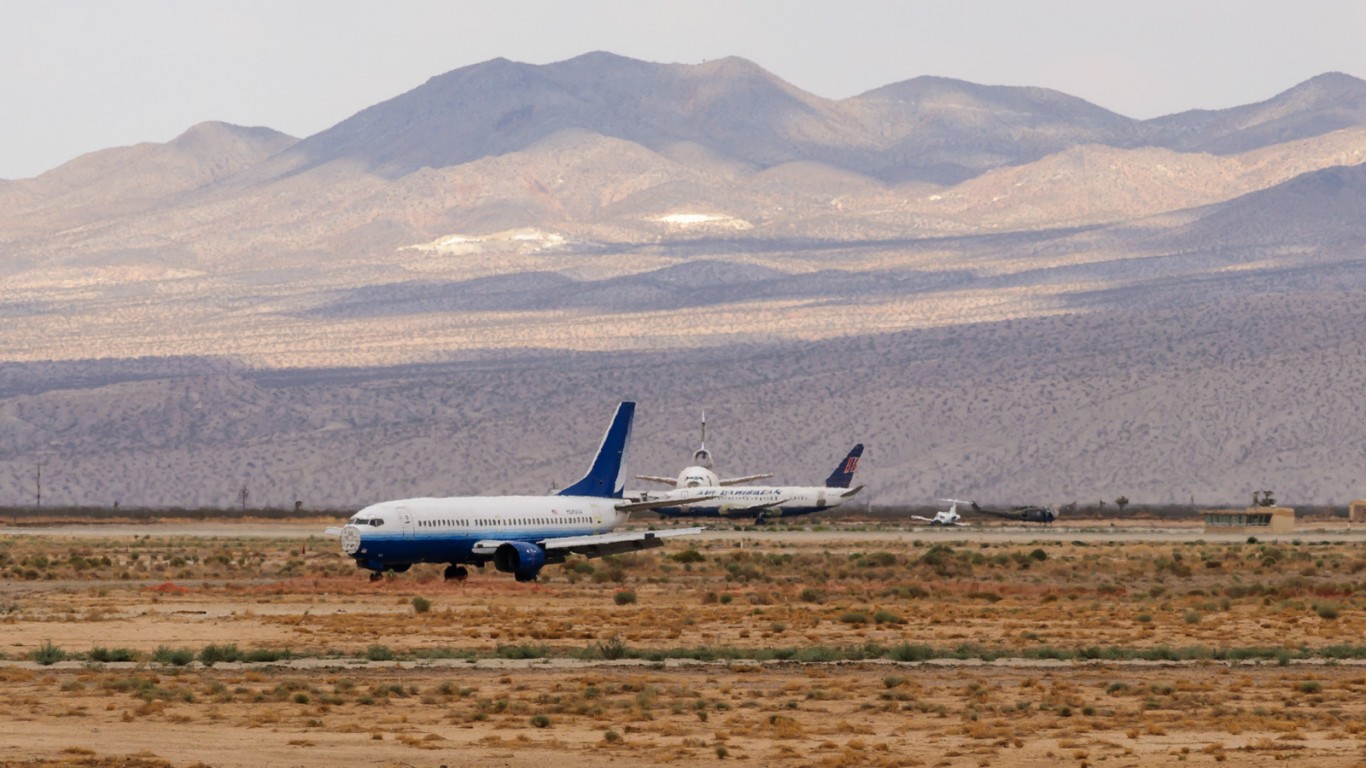
The U.S. Federal Aviation Administration (FAA) on Wednesday issued an airworthiness directive rescinding its grounding order on the Boeing Co. (NYSE: BA) 737 Max 8 and 737 Max 9 commercial passenger planes. The grounding order was issued in March 2019 following the second of two fatal crashes that killed 346 people in Indonesia and Ethiopia. The directive becomes effective on the date it is published in the Federal Register.
In its announcement, the FAA noted that the rescission does not mean that the 737 Max will immediately return to the skies. The agency must still approve Boeing’s pilot training program for “each U.S. airline operating the MAX and will retain its authority to issue airworthiness certificates and export certificates of airworthiness for all new 737 MAX aircraft manufactured since the FAA issued the grounding order.” Airlines that have parked their 737 Max fleets “must take required maintenance steps to prepare them to fly again.”
The directive issued Wednesday requires Boeing to install new software in the flight control computer, revise the existing 737 Max flight manual, install new display system software, change the horizontal stabilizer wiring, complete a test of the angle-of-attack sensor system and perform an operational readiness flight on every aircraft delivered.
Boeing has approximately 450 airplanes stored around the country, all of which will have to meet the certification requirements of the new AD. As we noted on Tuesday, Boeing hopes to deliver about half of the planes next year, in addition to around 60 more of the planes that are currently scheduled to be built and delivered in 2021. According to a Bloomberg report, nearly a quarter of the stored planes are “white tails,” which are planes not built for a specific customer or those built for customers that later backed out.
American Airlines already has scheduled the first flight for a 737 Max. Beginning December 29 and ending January 4, the airline will begin a single daily flight between New York and Miami. Southwest Airlines has said it expects that updating the planes to meet the new AD will take three to four months and it does not plan to fly the planes again until at least the second quarter of 2021.
A 737 Max 8 currently has an average list price of $121.6 million, and the larger 737 Max 9 costs an average of $128.9 million. At typical discounts, the Max 8 might cost around $73 million and the Max 9 more than $77 million. The cash flow will certainly be welcome.
In 2019, Boeing’s free cash flow was negative $4.3 billion, after a booming 2018 when free cash flow totaled $13.6 billion. For 2020, thanks to the grounding and the COVID-19 pandemic, free cash flow is reckoned to come in at a negative $18.2 billion. Once deliveries begin again, 2021 free cash flow is expected to reach a negative $1.9 billion before turning positive again in 2022 ($7.7 billion), about the same level as the company’s free cash flow in 2016.
An outstanding question remains. Will travelers want to fly on the plane? After more than 18 months on the ground and a revised recertification process, one could argue that the 737 Max will be the safest plane in the air. The FAA combed over the plane and it is highly likely that the agency’s engineers missed nothing. That, coupled with federal legislation strengthening the FAA’s certification process going forward, should allay fears of flying in the plane.
Boeing’s shares closed up 3.8% on Monday at $210.05 and were trading up 3.4% to $216.96 Wednesday morning. The share price has added around $34 since last Thursday (about 19%) after early reports that the FAA was about to recertify the 737 Max.
Fuselage maker Spirit AeroSystems Holdings Inc. (NYSE: SPR) also traded up about 6.5% in Wednesday’s premarket but was last seen down 1.3% at $33.35, in a 52-week range of $13.69 to $92.19. About half of Spirit’s revenue in 2018 came from Boeing, and the company has been treading water ever since Boeing stopped producing the 737 Max late last year.
General Electric Co. (NYSE: GE) traded up 3.1% Wednesday morning, at $9.99 in a 52-week range of $5.48 to $13.26. The company’s aviation segment is one of two engine suppliers for the 737 Max, and revenue in the segment fell by 44% year over year in the third quarter. Not all that was due to the grounding of the 737 Max, but Wednesday’s FAA announcement is certainly good news for GE.
Want to Retire Early? Start Here (Sponsor)
Want retirement to come a few years earlier than you’d planned? Or are you ready to retire now, but want an extra set of eyes on your finances?
Now you can speak with up to 3 financial experts in your area for FREE. By simply clicking here you can begin to match with financial professionals who can help you build your plan to retire early. And the best part? The first conversation with them is free.
Click here to match with up to 3 financial pros who would be excited to help you make financial decisions.
Thank you for reading! Have some feedback for us?
Contact the 24/7 Wall St. editorial team.
 24/7 Wall St.
24/7 Wall St.